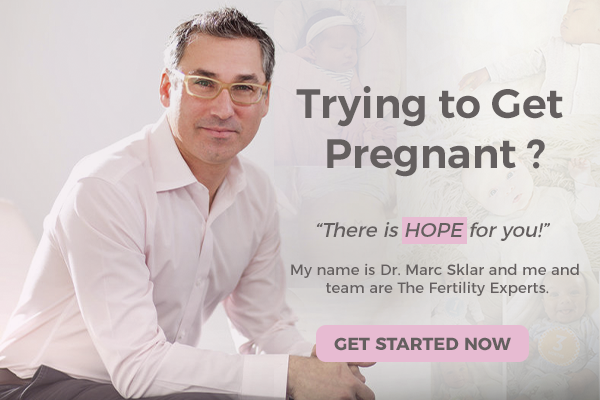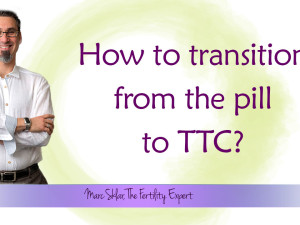What are the success rates of IVF?
Have you been wondering what IVF success rates are? Have you been advised to do IVF and been told that you’ll for sure get pregnant? Learn about where to find IVF success rates and how to understand them on this week’s episode of Fertility TV…
Our patients come to The Fertility Expert team all the time believing that IVF treatment has a 100% success rate.
Unfortunately, you come to us with this belief in the middle of your IVF treatment (or after you’ve just finished an IVF cycle and it wasn’t successful).
Well let’s start out with some basic common knowledge: nothing in life is ever 100% successful. If that fact was somehow different for IVF, then everyone would be doing it and the queues would be out of the doors.
While many IVF clinics already have queues going out of their doors, the reality is that the success rates for IVF treatment vary for several reasons.
Knowing how to find out a clinic’s success rates, how to read them and how to understand what they mean/represent is super important before you make a decision.
IVF treatment is not cheap. And it’s certainly not easy.
However, knowing about these things ahead of time will definitely lighten the burden a little bit…
Knowledge is empowerment
I want you to go into your IVF treatment feeling prepared and like you had all the information you need before you made your decision.
The success rates – what are they?
Sadly, despite the incredible medicine and technology that is IVF treatment, it’s still not advanced enough to guarantee a 100% success rate.
IVF success rates are around 25-35% depending on your age and what fertility conditions you’re diagnosed with. They can also vary from clinic to clinic – and this should be taken into consideration when you decide where you’re going to get treatment.
Where to find the success rates for the clinics under your consideration? Start on the internet. Many clinics will report their success rates on the Sart or CDC websites.
However, clinics don’t actually have to report their rates and when they do so it’s voluntary.
You can always ask the clinics you’re considering to share their success rates with you.
 Look at the right numbers
Look at the right numbers
Once you’ve found the success rates – it’s time to start reading them correctly.
It’s important to keep in mind that the statistics reported are going to be older than the current year (maybe 2 years old).
This is because IVF clinics only report a year at the time and it can take a while to get data.
Think about live birth success rates: it takes time to report live birth rates if someone is pregnant in October, you’ll have to wait for 9 months and for the next year’s report date that follows before any of that data is released into the world.
Just know that it’s normal to see rates that are 2 years old – these statistics take time to collect.
You may also see that the success rates have been categorized by age and procedure (fresh vs frozen) which can help you to see the statistics more relevant to you.
It’s important that you take some time to understand what you’re reading. And while some of it is helpful and can give you a lot of insight, it’s not the final decider either.
Fertility conditions aren’t usually accounted for. You won’t see the woman with endometriosis, fibroids or cysts on them.
It’s also worth thinking about how if a clinic does not work with all types of patients – you won’t see that on their reports either.
Clinics who pick patients based on their likeliness of having IVF success will have higher rates. Clinics who try to help everyone who walks in will have lower rates.
IVF will help you to get pregnant, but nothing is guaranteed.
Did you think IVF was 100% successful?
Did you think success was almost always guaranteed to people going through IVF?
You’re not alone in thinking that. Many couples who make the financial and emotional commitment to IVF believe that it has to work. This is not helpful to them when they realise it could be at least 3 rounds before there are any results.
There are ways can improve these rates by learning how to make your IVF more successful.
Research has also shown that women in support groups also have higher IVF success rates. If you’re going through IVF (or thinking about it), I encourage you to take a look into my online program and support group for IVF.
Don’t go through this journey feeling uninformed or alone – go into it feeling empowered, prepared and with a village of people rooting for your success with you.
H.O.P.E Coaching – Heal naturally to Overcome infertility & get Pregnant by Empowering your body
Who is this for: Any women trying to get pregnant for +6 months
It includes: 60 minutes coaching call with Dr Sklar, The Fertility Expert
During this 1 hour online fertility consultation with Dr Sklar, or his team of natural fertility experts, you will get all the fertility support you need, we will review your case, give you recommendations and create a next steps for a personalized plan to help you get pregnant
The H.O.P.E Coachingis a 60 minutes call where we will go over your fertility case and give you customized recommendations, that work for YOU. Me and my team of fertility doctors are here to help you improve your fertility to get pregnant.

Keep learning about How to EMPOWER your fertility naturally with weekly Fertility TV Episodes!
Almost 50,000 subscribers can’t be wrong! A fresh approach to natural fertility and women’s health, with tons of easy health tips on how to get pregnant and fertility science with a dash of humor! Get the weekly Fertility TV episodes with all you need to know when trying to get pregnant




